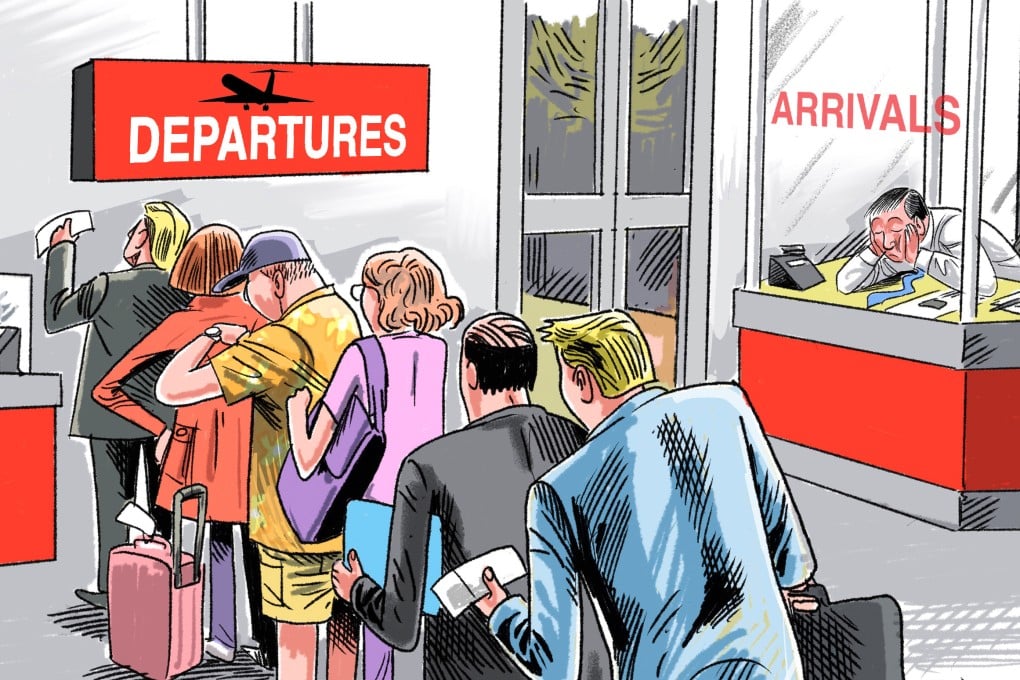Advertisement
Opinion | Do China’s leaders fully grasp foreigners’ concerns about the country?
- Beijing has been slow to address the visa and e-payment woes of foreign travellers, and some officials remain complacent about the exodus of foreign investment
- As Hong Kong’s Article 23 security laws cause jitters in the financial centre, Beijing must address the multitude of concerns
Reading Time:4 minutes
Why you can trust SCMP
53

China’s Luckin Coffee, founded in 2017, is the country’s largest coffee chain, with more stores and higher revenue than Starbucks. Its cashless grab-and-go model, where customers order on the app and pick up at the store, is key to its success. But for walk-in customers, and overseas visitors who have neither the app nor the e-wallets it accepts, this model is a nuisance.
Advertisement
I bought a Luckin coffee recently in Zhuhai. The young barista behind what looked like a till refused to take my order verbally, insisting I order from the app. After finding the app and surrendering some personal information, I finally placed my order, leaving with a bad taste in my mouth.
For mainlanders, Luckin Coffee is a shining example of China’s leadership in an increasingly cashless world, where people use digital devices to pay for everything from a taxi ride and restaurant meal to groceries and air tickets. Many Chinese are proud of carrying neither cash nor credit cards. Most business operators refuse to accept cash, let alone credit cards, even though it is against the law.
My Luckin Coffee encounter, however, highlights the cons of a cashless society, with daily life increasingly inconvenient for older, cash-using Chinese and overseas visitors – just as the government is keen to welcome back foreign tourists and businesspeople.
After nearly three years of self-imposed isolation to combat Covid-19, China reopened its borders at the end of 2022. The initial anticipation that tourists and business travellers would flood back evaporated quickly.
Advertisement
Last year, foreign arrivals were down 60 per cent from pre-pandemic levels. Anecdotes suggest international arrival and departure areas of major airports are eerily empty, with passengers on international flights mostly Chinese.

Advertisement
